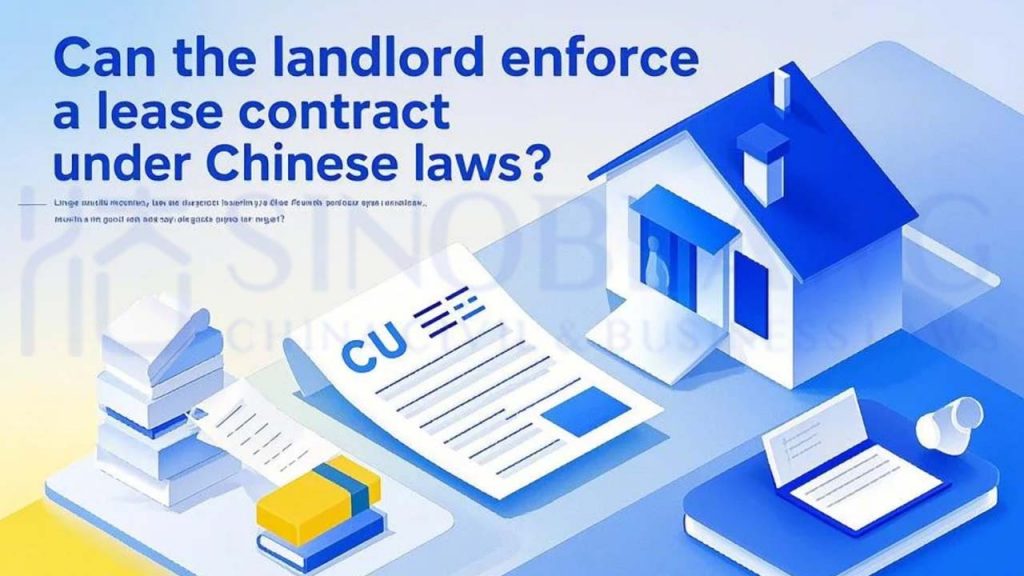Leasing is a commonplace type of real estate deals in the market. There are many kinds of leases, apartment lease, factory lease and office lease etc. Serviced offices are regarded as a type of lease with special features.
Landlords always have the same headaches of tenants terminating the lease prematurely. For serviced office providers, this headache is the biggest one. A typical scenario is where the tenant delays in paying the rental for a certain month and then just returned the keys and disappeared.
Landlords are now facing up the question: whether it is legal and possible to enforce the tenant to carry out the lease pursuant to its terms?
The special chapter of “lease contract” in China Contract Law does not offer a clear answer to the question. As a general principle as laid out in Article 107, in the case of breach of contract, the other party to the contract may sue to request the breaching party for real performance, remedial measures or damages. In particular, Article 109 provides that where a party fails to pay contract price or remuneration, the other party to the contract shall have the right to ask the breaching party to pay.
It seems that it is ok for the landlord to request the tenant to continue to perform the lease contract. Now the problem is whether the court is willing to order the tenant to pay the rental while the tenant refuses to use the property or has already vacated the property.
On one hand, under a valid lease contract, the tenant has the obligation to pay the rent in exchange for its right to use and enjoy the property (other leased objects). Once the landlord delivers or gives possession of the property to the tenant, it is up to the tenant as to whether to use the property and how to use it, subject to contract terms and laws. Strictly speaking, the tenant is still bound to pay the rents even if it leaves the property idle. Anyway, as a matter of law or legal philosophy, a right can be enjoyed or abandoned by its owner.
On the other hand, in the event that the tenant (business entity or manufacturer) terminates the lease contract and moves out of the property (though in violation of the contract terms), it must lease another property for use as a matter of course. That said, if the court supports the landlord’s claim for specific performance of the lease contract, that tenant will be left in a dire situation where it has to pay two rents for its one business operation. This may well turn on the conscience of Chinese courts who have a traditional propensity to look beyond the terms of contract to redress justice and equity.
So it is my opinion that Chinese courts won’t readily to enforce a lease contract against the tenant who early terminates a valid contract in violation with the terms and conditions of the said lease contract.
In case of early termination by the tenant in default, the landlord while he may request the tenant to continue to honor the lease contract should actually start looking for replacement tenant in order to save and mitigate possible loss, and get prepared to sue for damages in accordance with contract terms.








During my writing of this post, I talked with two colleagues. They held exactly the opposite opinions. Nonetheless, I am more or less leaning toward the “nope” opinion.Again, where the law is not clear, it is the good play field for the lawyers.